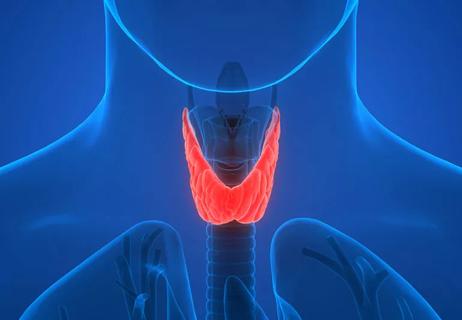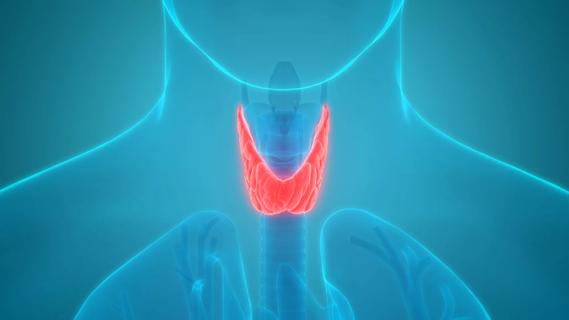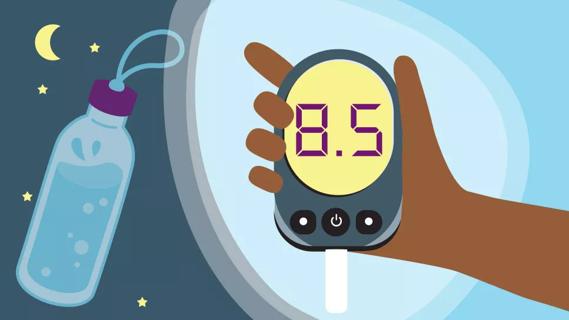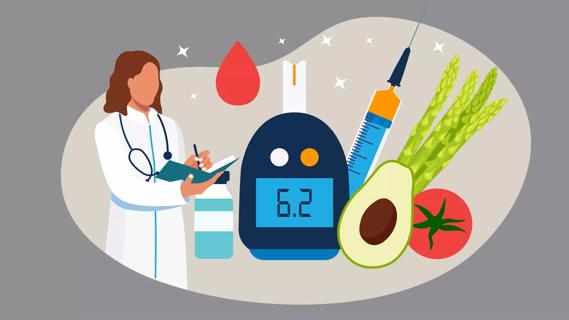The truth about natural thyroid symptom relief

If you have a thyroid condition, it’s no secret that exercise and a healthy diet can help manage your symptoms and improve your overall health. However, if you have an undiagnosed thyroid condition that’s not properly controlled, there are risks — especially when it comes to natural supplements and exercise.
Cleveland Clinic is a non-profit academic medical center. Advertising on our site helps support our mission. We do not endorse non-Cleveland Clinic products or services. Policy
It’s crucial to talk to your doctor about symptoms like fatigue, sleeping trouble and weight gain or loss. These common symptoms can have many causes, including a thyroid disorder.
Endocrinologist Christian Nasr, MD, explains why exercising with either uncontrolled hyperthyroidism (overactive thyroid) or hypothyroidism (underactive thyroid) can be dangerous to your health. These conditions increase or depress people’s metabolism and can speed up or slow down their heart rate.
For people with significant hyperthyroidism, commonly caused by the autoimmune disorder Graves’ disease, exercise can dangerously overheat your body. People with hyperthyroidism could feel flushed, anxious and can experience insomnia.
“For someone who has significant clinical hyperthyroidism, it’s as if they are already running a treadmill every day, even in their sleep,” says Dr. Nasr. “Excessive exercise can cause a person to go into heart failure if their thyroid hormones are not under control.”
People with significant hypothyroidism — commonly caused by the autoimmune disorder Hashimoto’s disease — should also be cautious. An underactive thyroid causes the heart rate to slow, so a sudden return to exercise can be like a jolt to the heart. People could feel hypersensitive to cold and even depressed.
“I advise my patients with hypothyroidism not to exercise for a few weeks until their condition is well controlled with medications,” says Dr. Nasr.
Once a person with a thyroid disorder returns to normal thyroid function with the use of medications, a return to exercise is safe and can help improve remaining symptoms.
People with hypothyroidism, for example, often experience fatigue and weight gain that doesn’t always ease up with the use of thyroid medications. Exercise can help boost energy levels and control weight.
According to a study done on thyroid hormone levels after practicing yoga for one hour a day, problems like fatigue, constipation and weight loss were reduced significantly. Practicing yoga as a form of exercise can help thyroid function symptoms, but cannot cure it.
Finding the right exercise regimes that work best for you is key, especially if you have hyperthyroidism or hypothyroidism. People should strive to meet weekly goals of 150 to 300 minutes of moderate exercise or 75 to 150 minutes of vigorous exercise. The benefits of exercise range from reducing the risk of death from heart disease to improving anxiety and depression.
Besides being aware of exercise risks, it’s important to be wary of diets billed as being thyroid-friendly. There’s plenty of misinformation out there about foods and supplements that claim to ease the symptoms of thyroid disorders, such as iodine and soy.
Iodine deficiency is a leading cause of hypothyroidism worldwide, but the typical U.S. diet contains plenty of it. Americans should avoid taking iodine supplements or adding daily servings of high-iodine foods like kelp or seaweed to keep their thyroid in balance.
Soy can be a healthy addition to anyone’s diet, but if someone has hypothyroidism it may also affect the absorption of thyroid hormone. When you eat a lot of it daily, it can precipitate hypothyroidism in a person with Hashimoto’s disease.
To possibly delay developing hypothyroidism, Dr. Nasr tells patients to try 200 micrograms a day of selenium, a trace element that limited studies have connected to reducing thyroid inflammation found in those with Hashimoto’s disease. This can be done naturally by consuming two or three Brazil nuts or fish, meat and poultry.
When it comes to thyroid conditions, including symptoms and dietary questions, it’s critical to keep your doctor informed.
Learn more about our editorial process.

Hyperthyroidism can make you feel sluggish and exhausted — but so can other conditions

How overtreatment for hypothyroidism places you at risk

The short answer from an endocrinologist

This therapy may be recommended at any age, but it’s commonly started before puberty

Treatments are designed to help with growth hormone deficiency, which can affect your child’s height

There are better breakfast options, but if it’s got to be cereal, look for whole grains, high fiber and no added sugar

Planning ahead, checking in with your care team and being vigilant about blood sugar monitoring can help ensure a safe fast

A diabetes diagnosis, new or long-standing, can trigger reactions like grief, stress, depression and frustration, but symptom relief and help are available

Your metabolism may torch 1,300 to 2,000 calories daily with no activity

A gentle touch in all the right places may help drain your sinuses